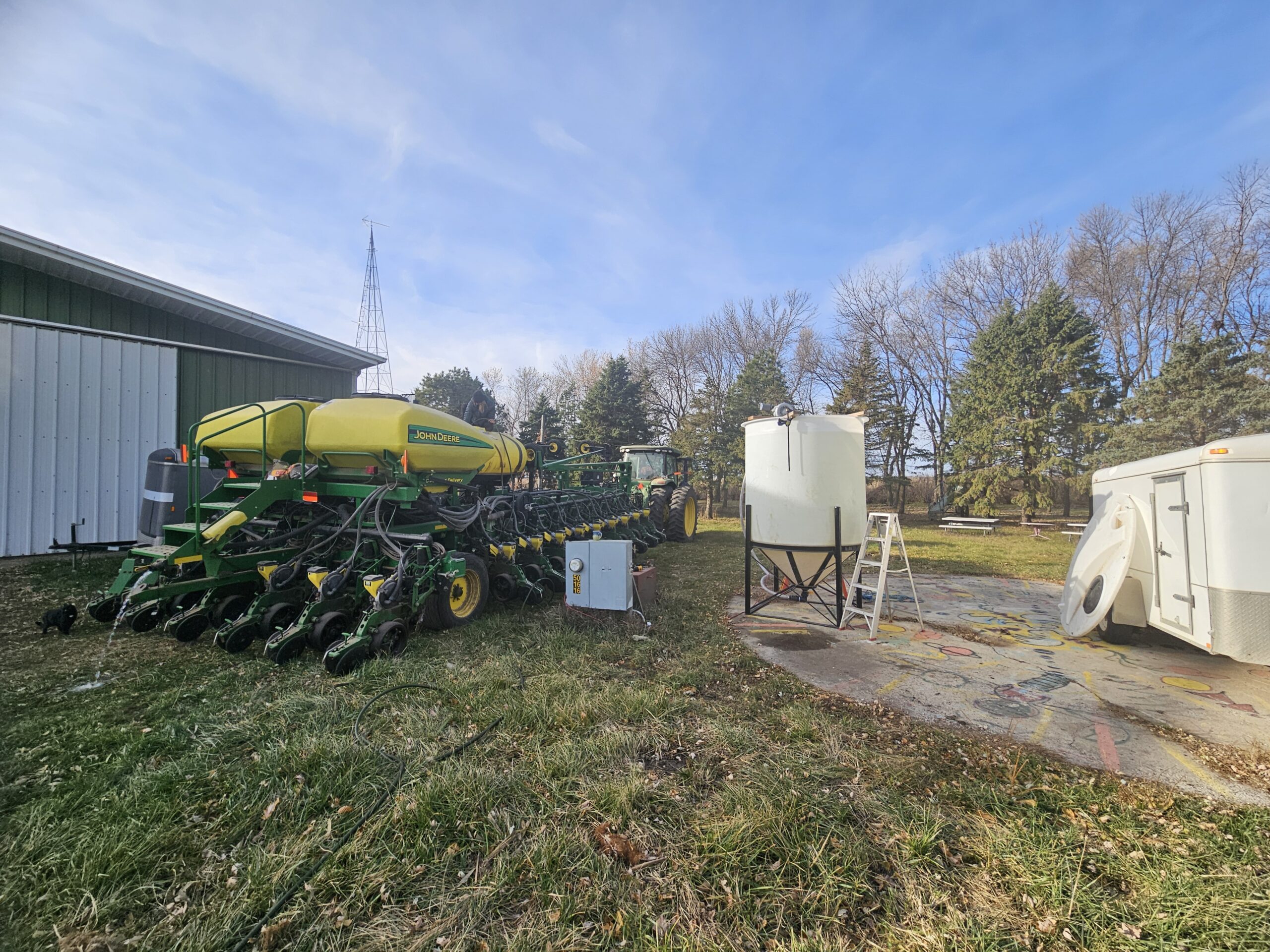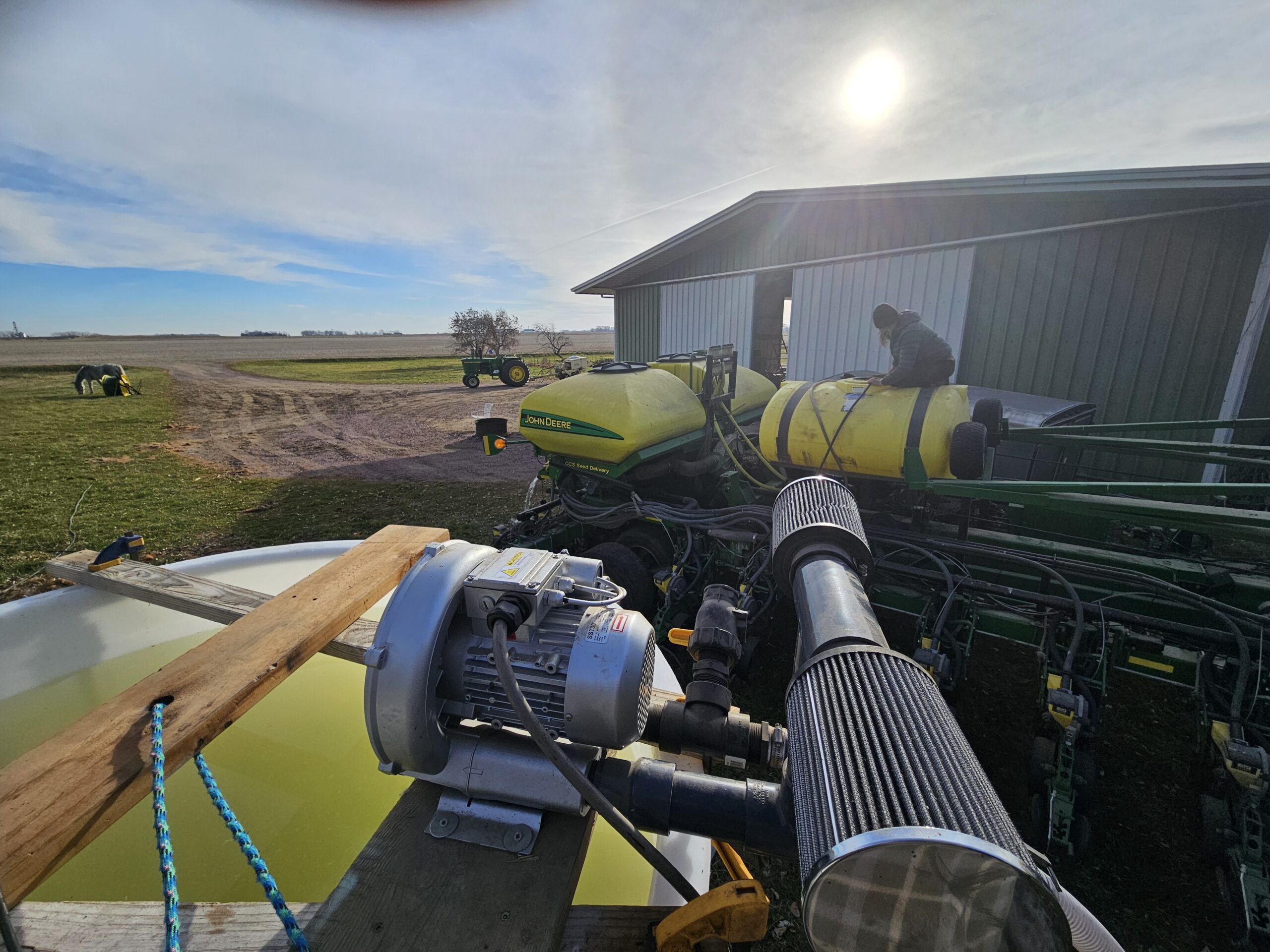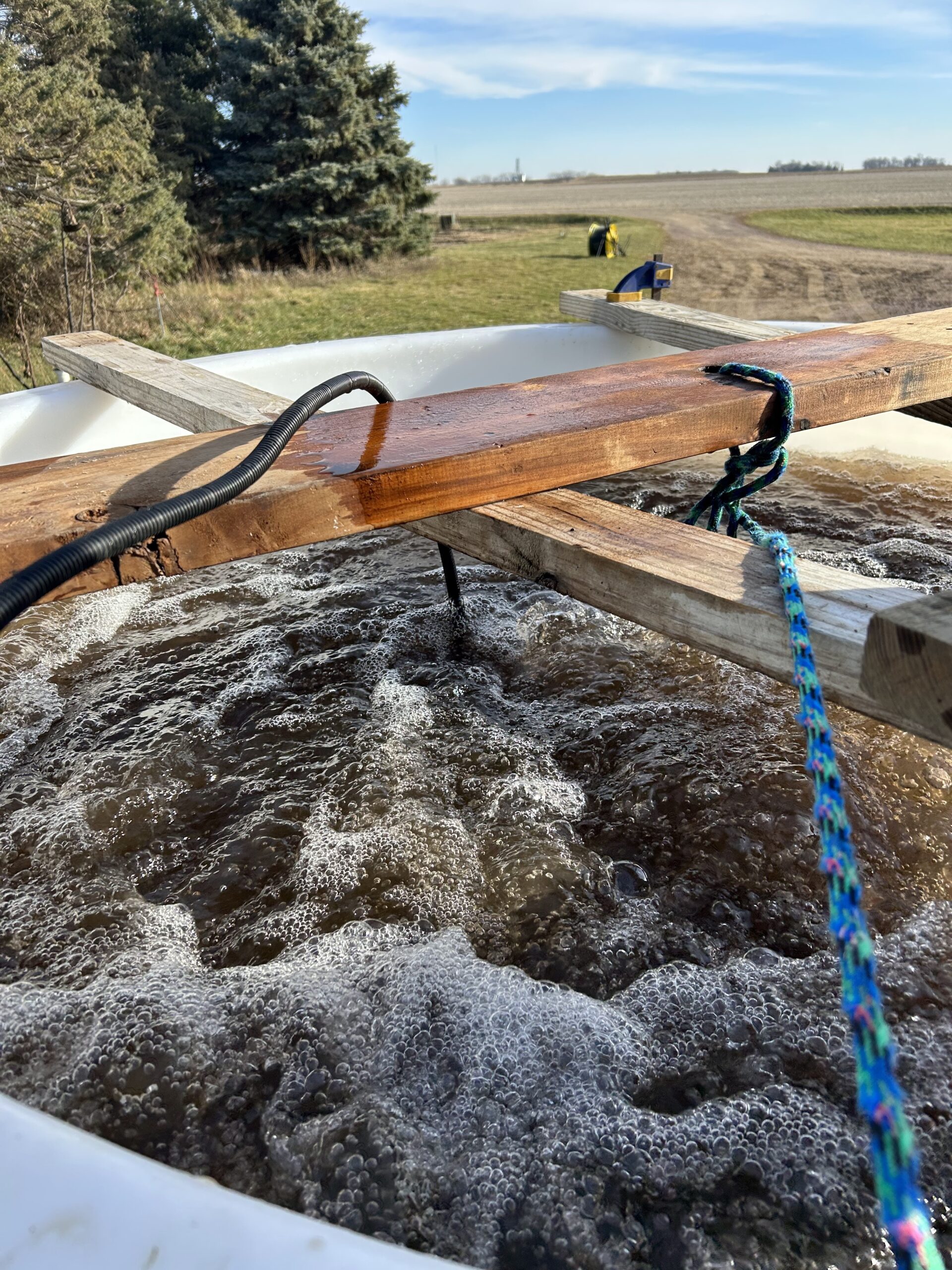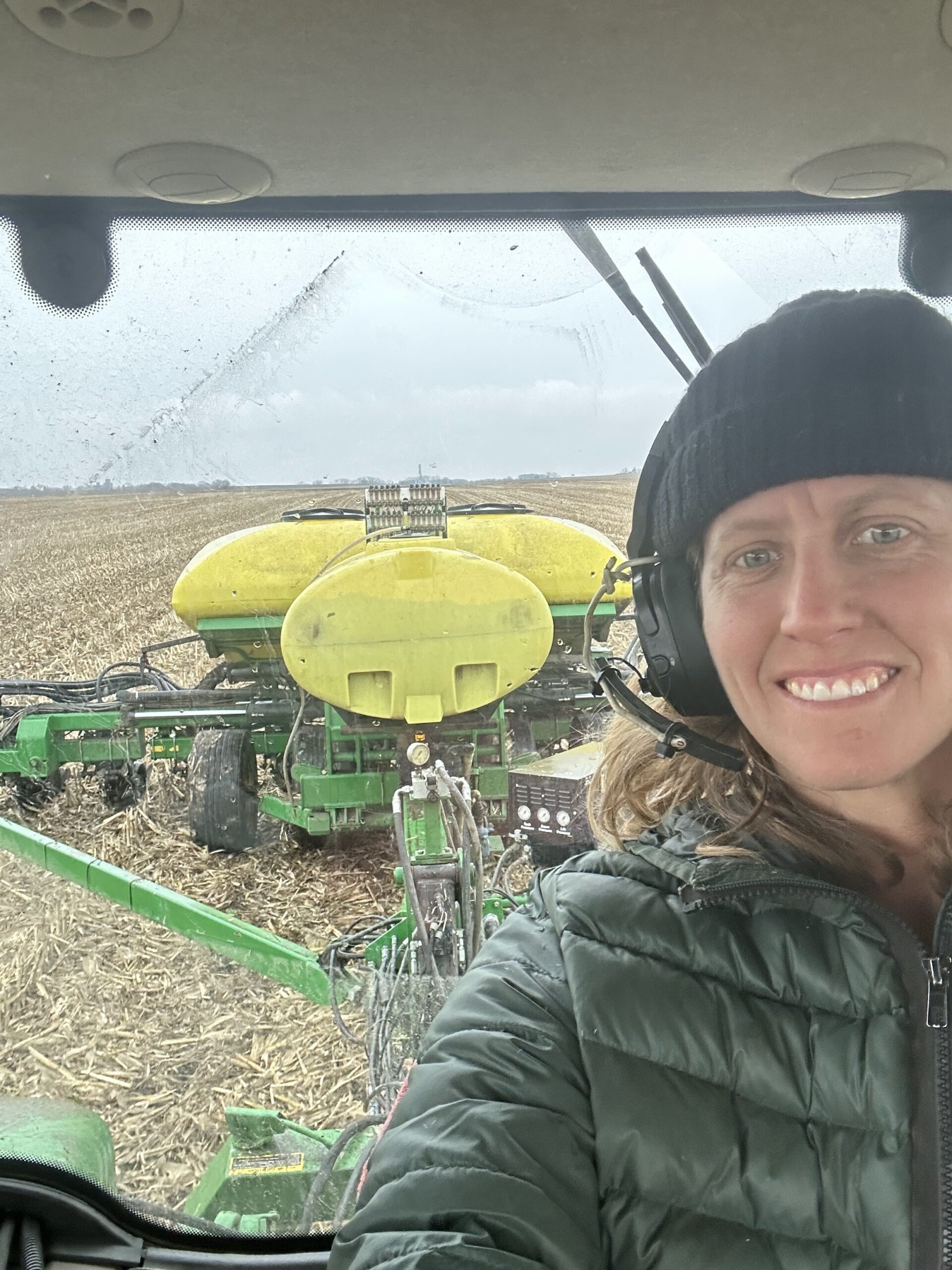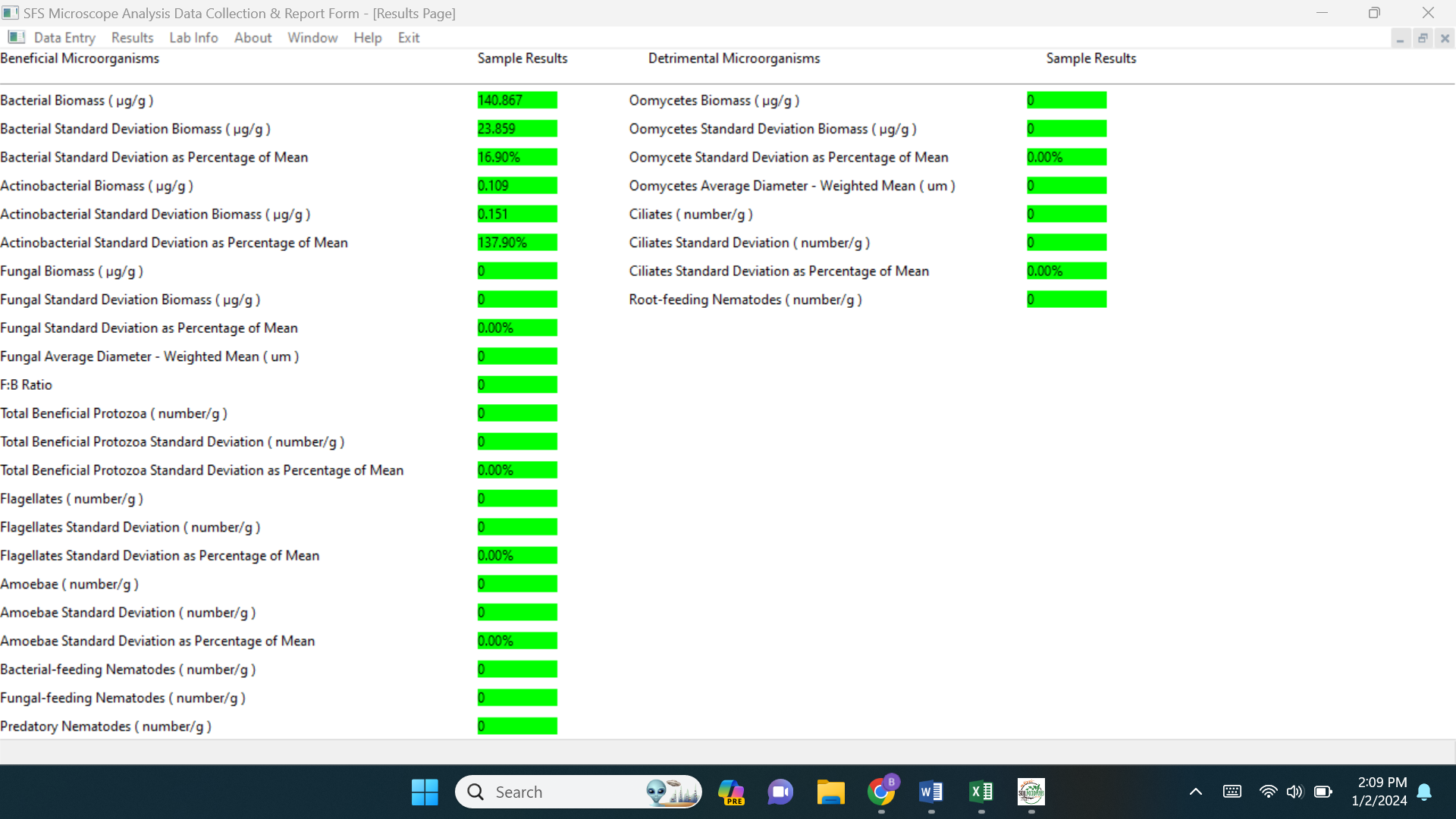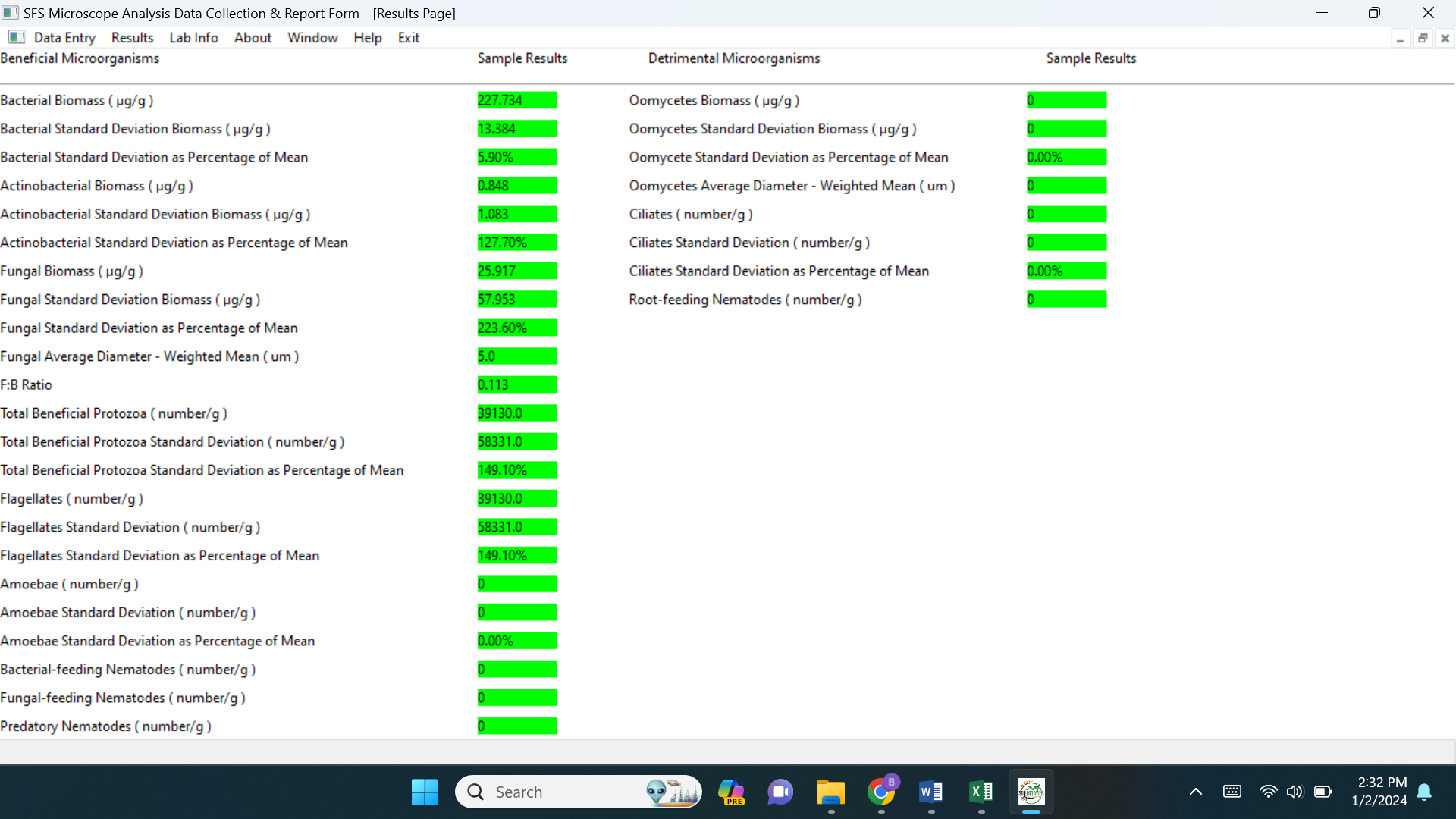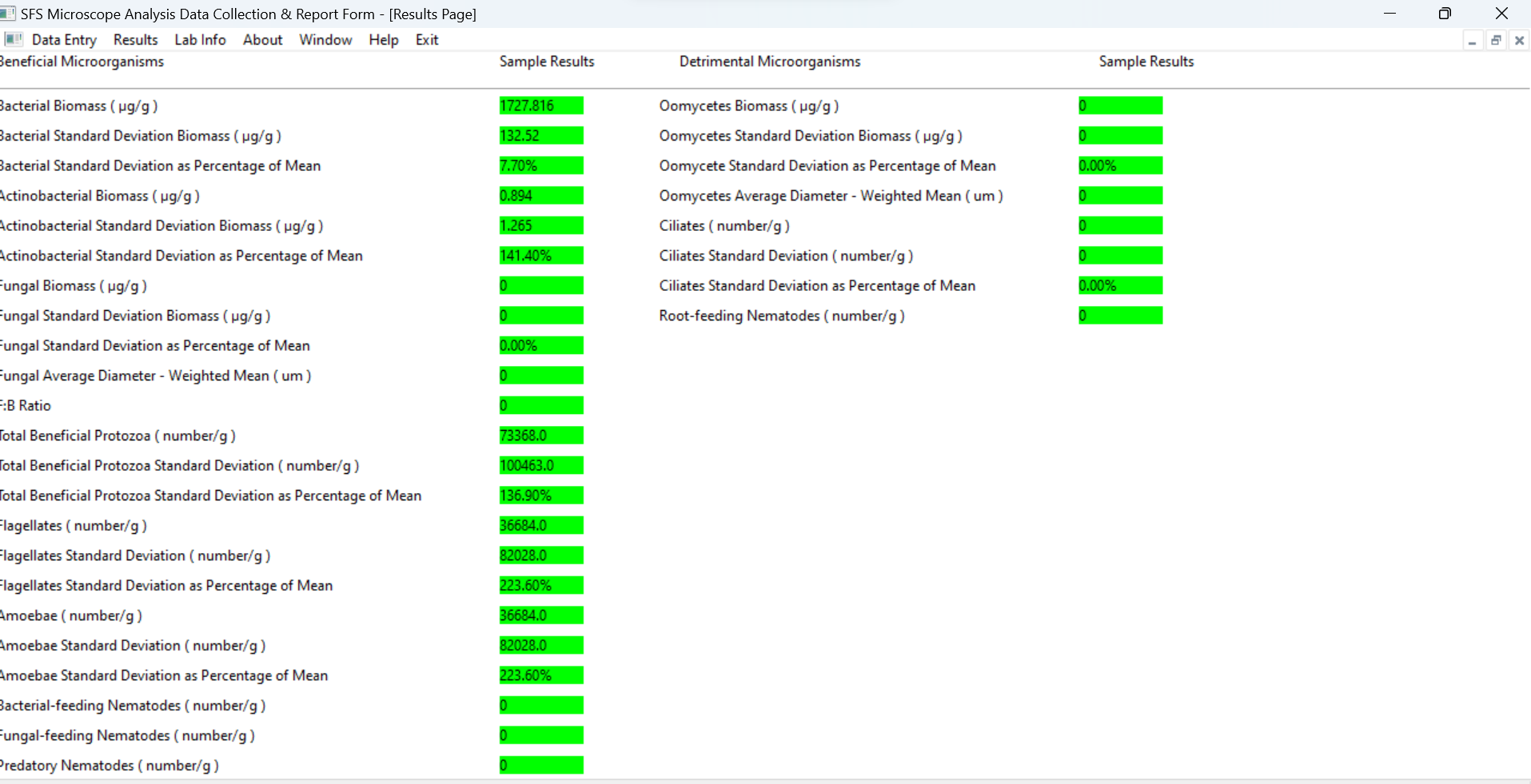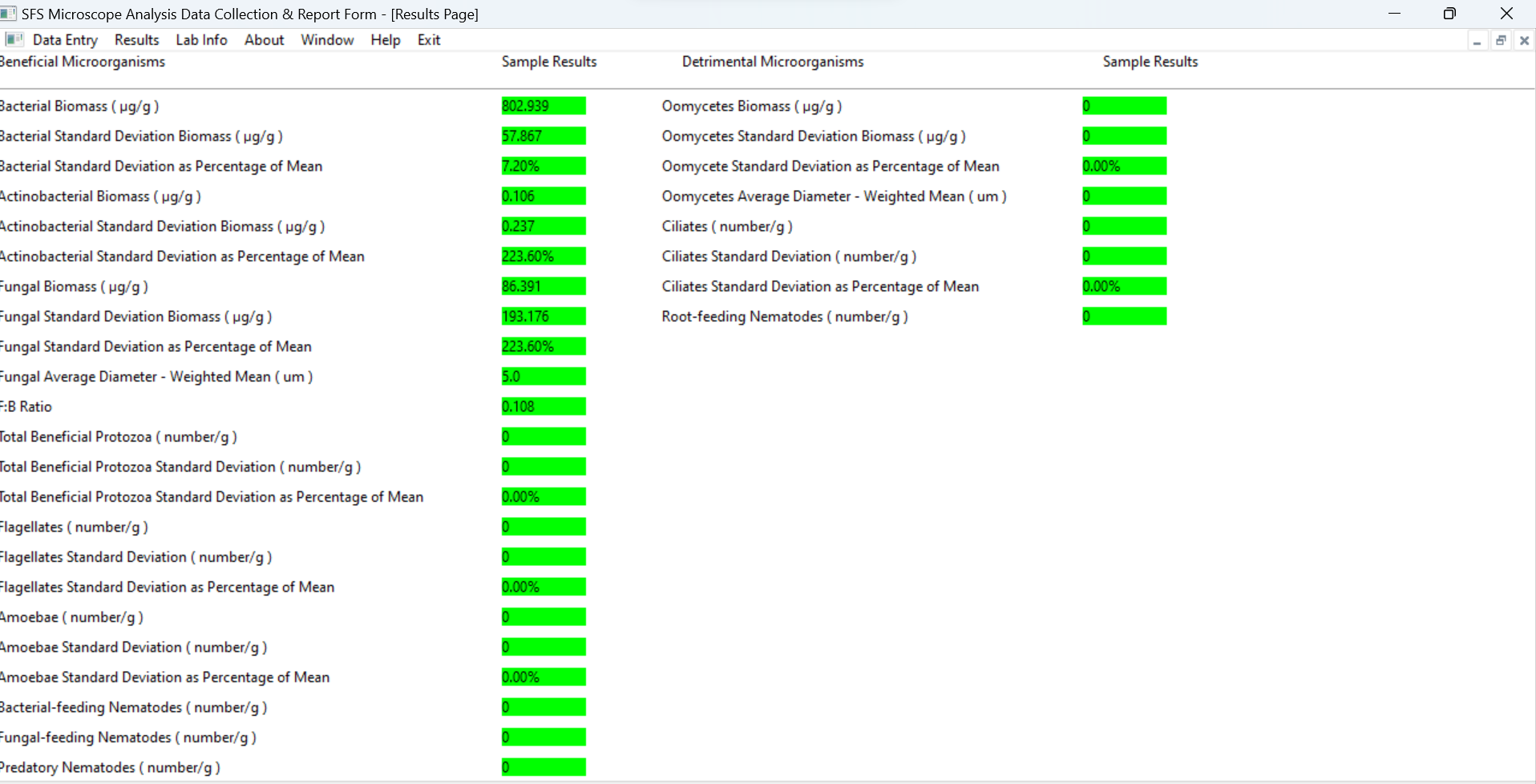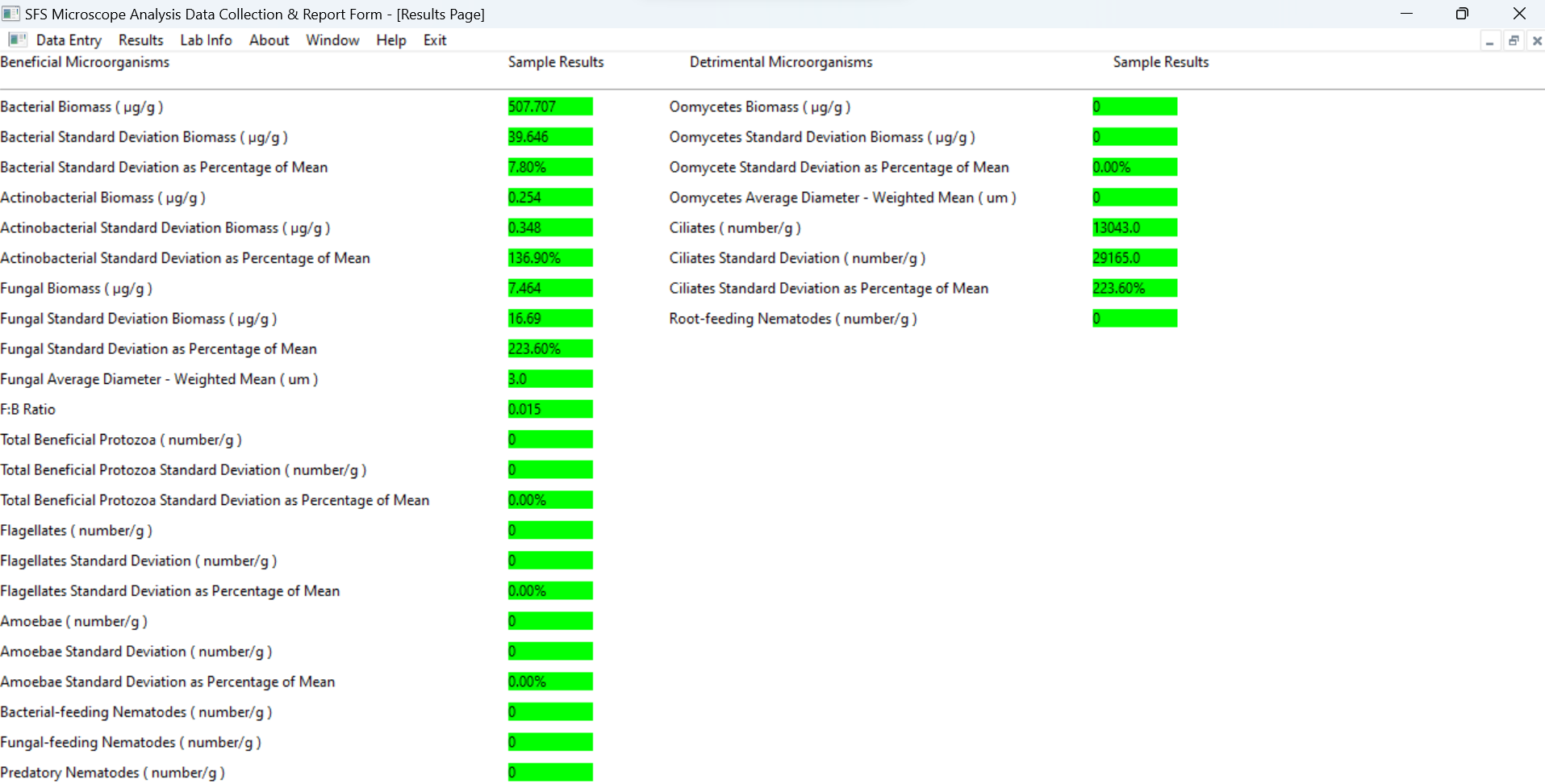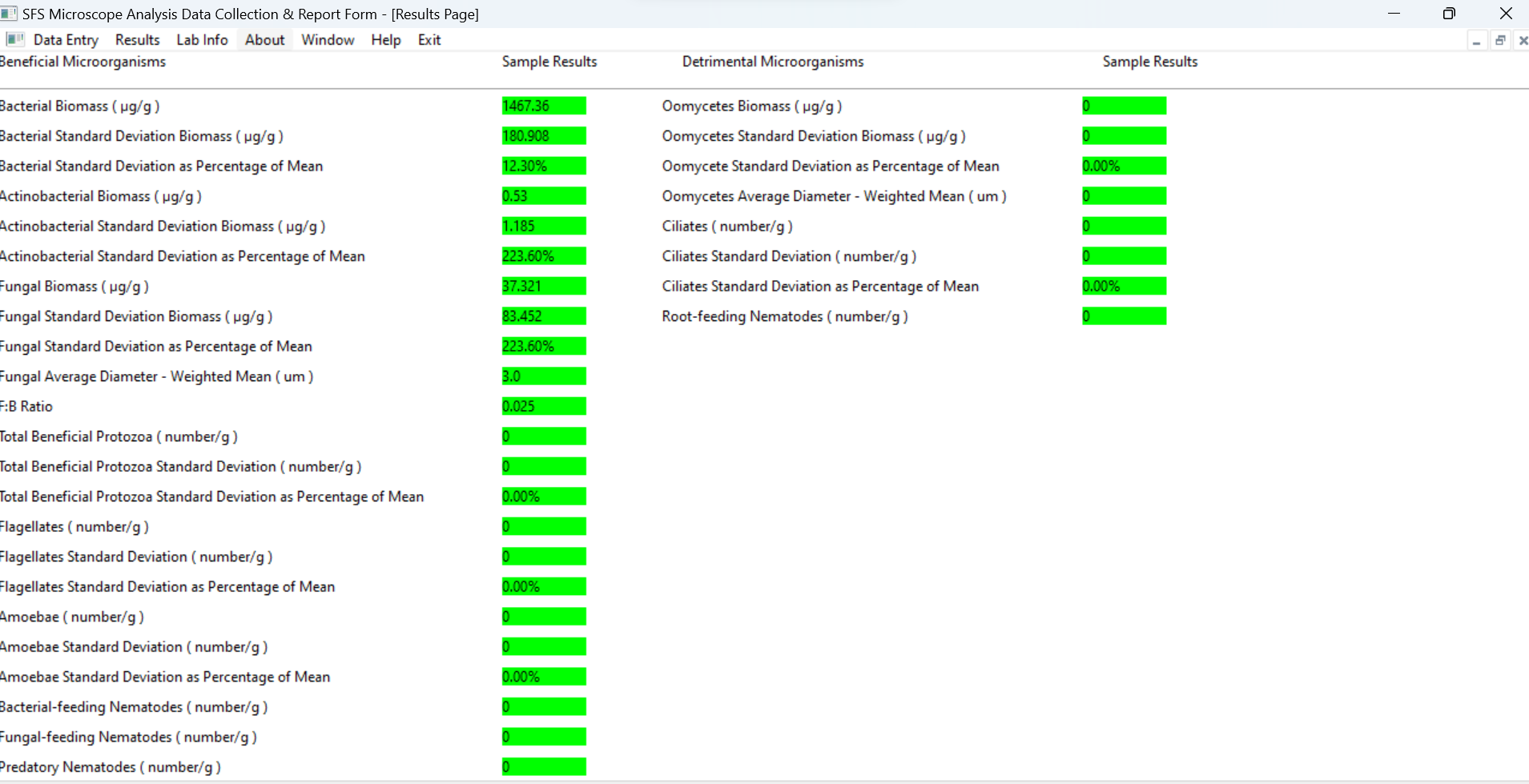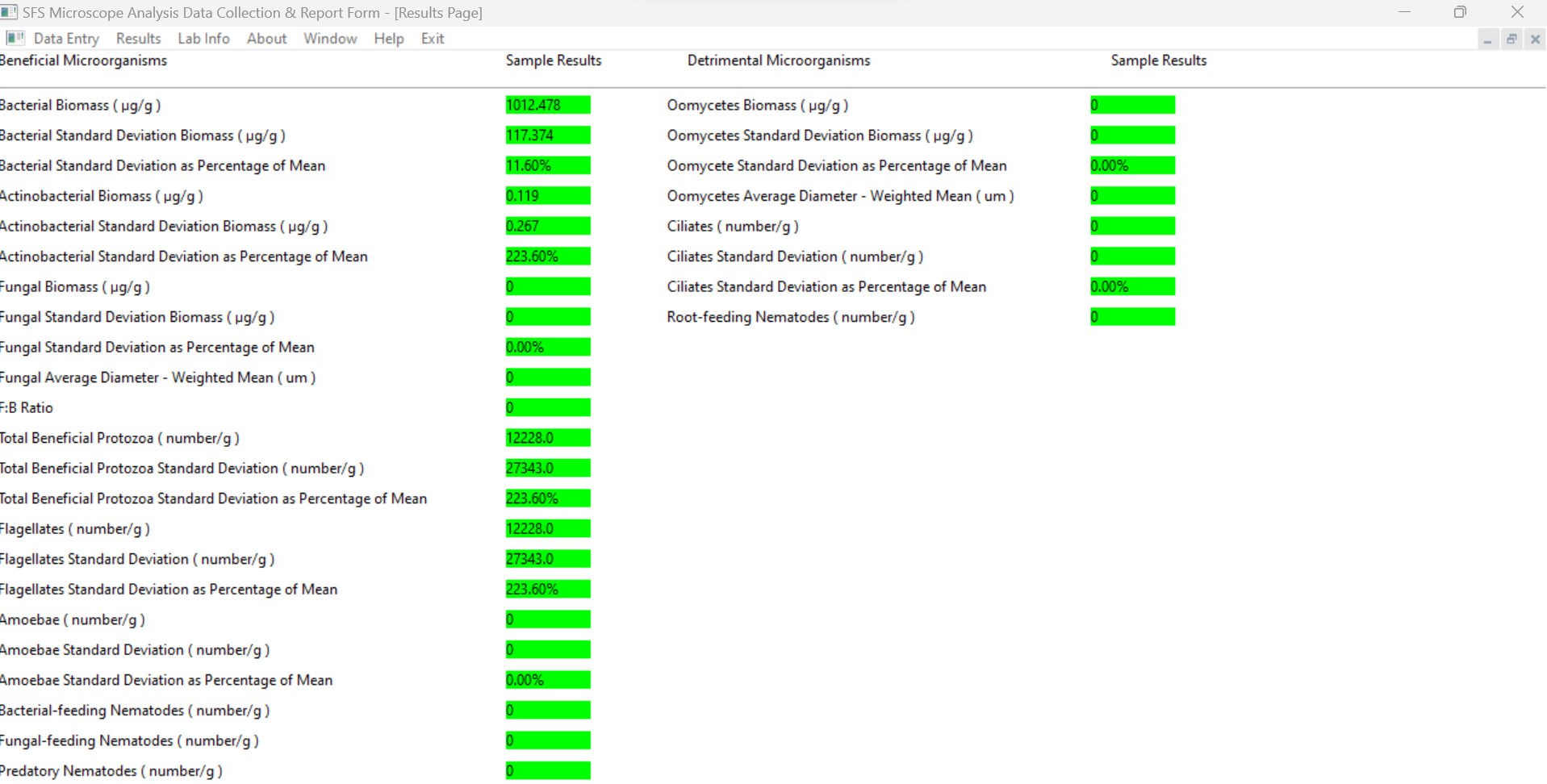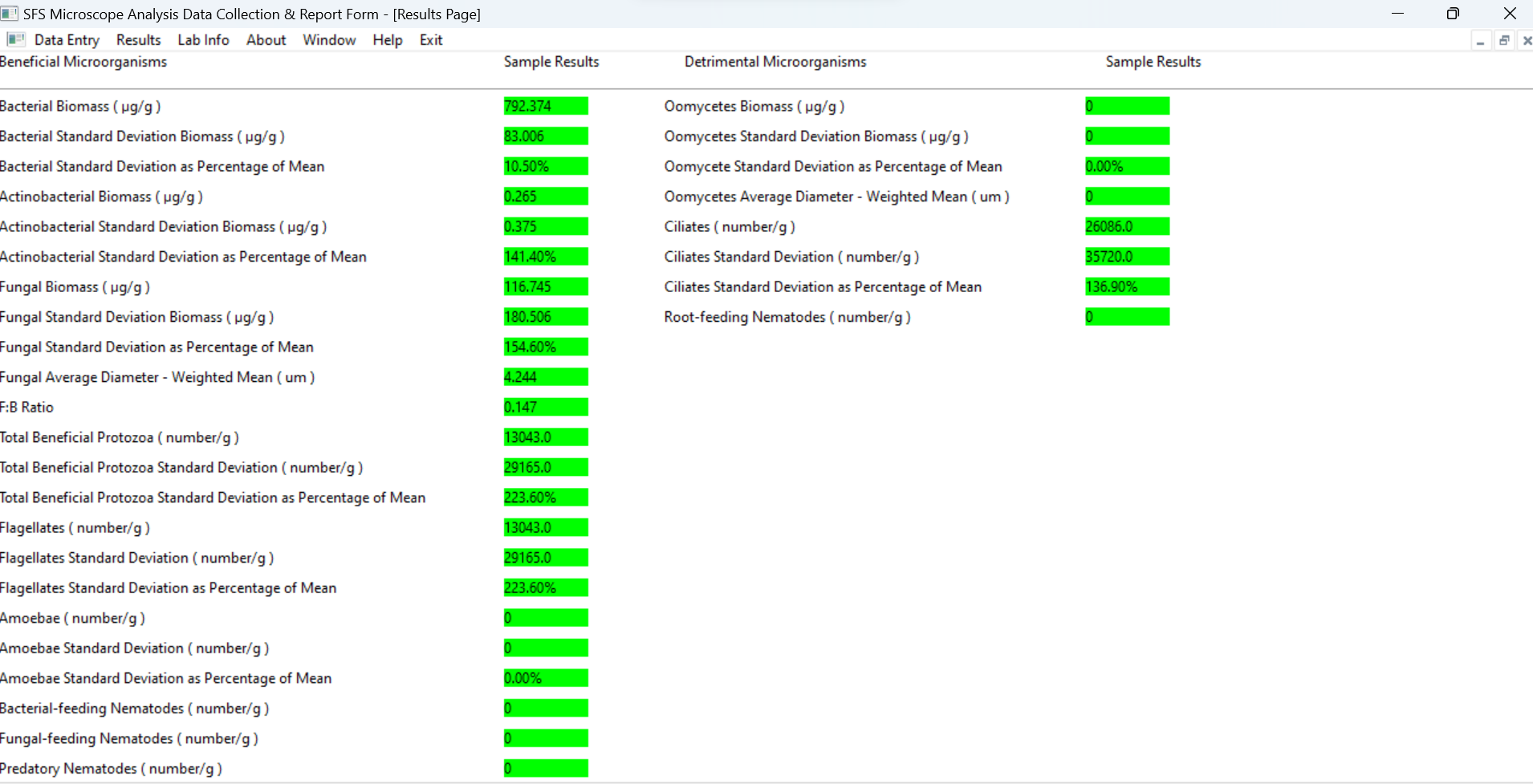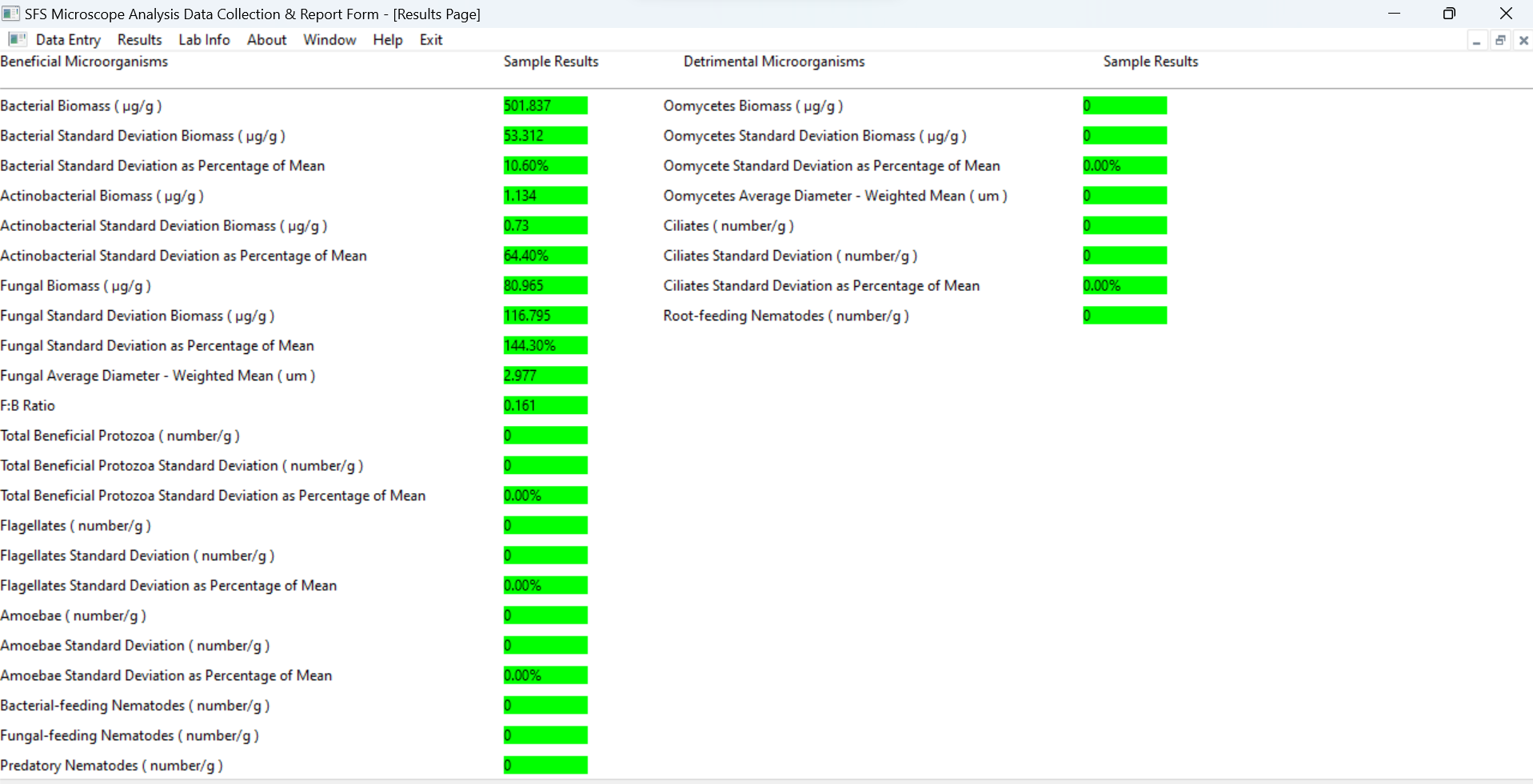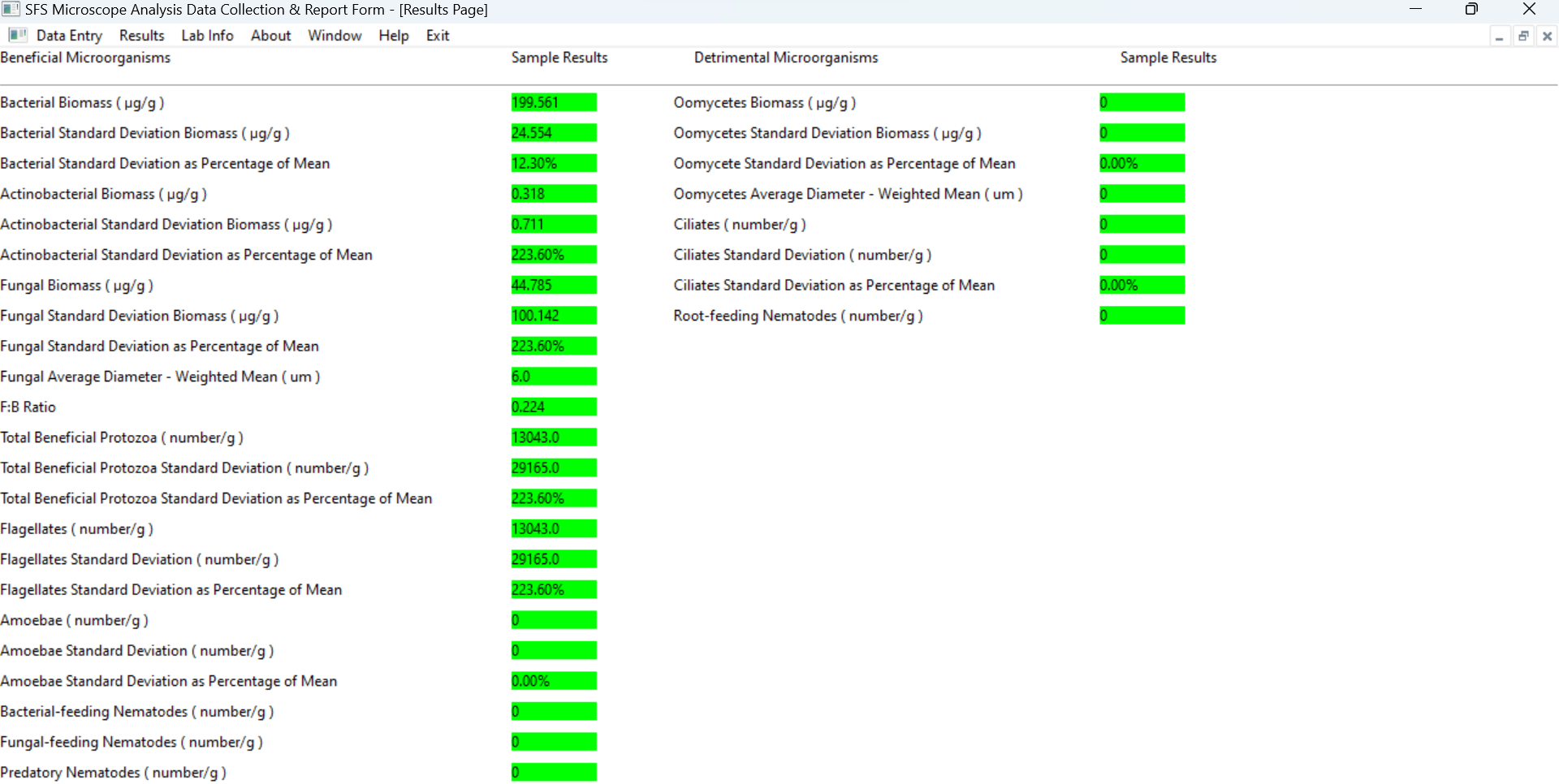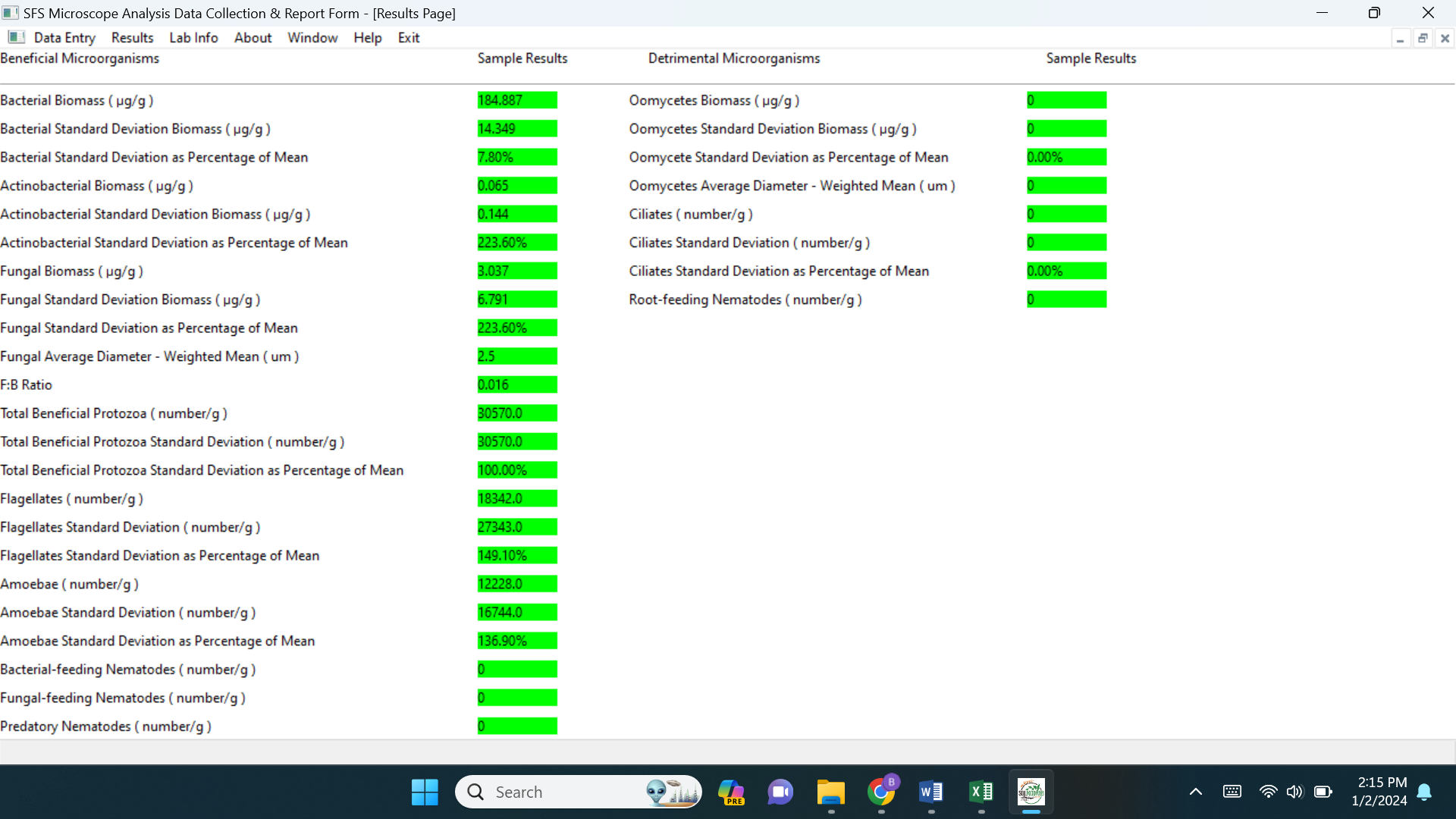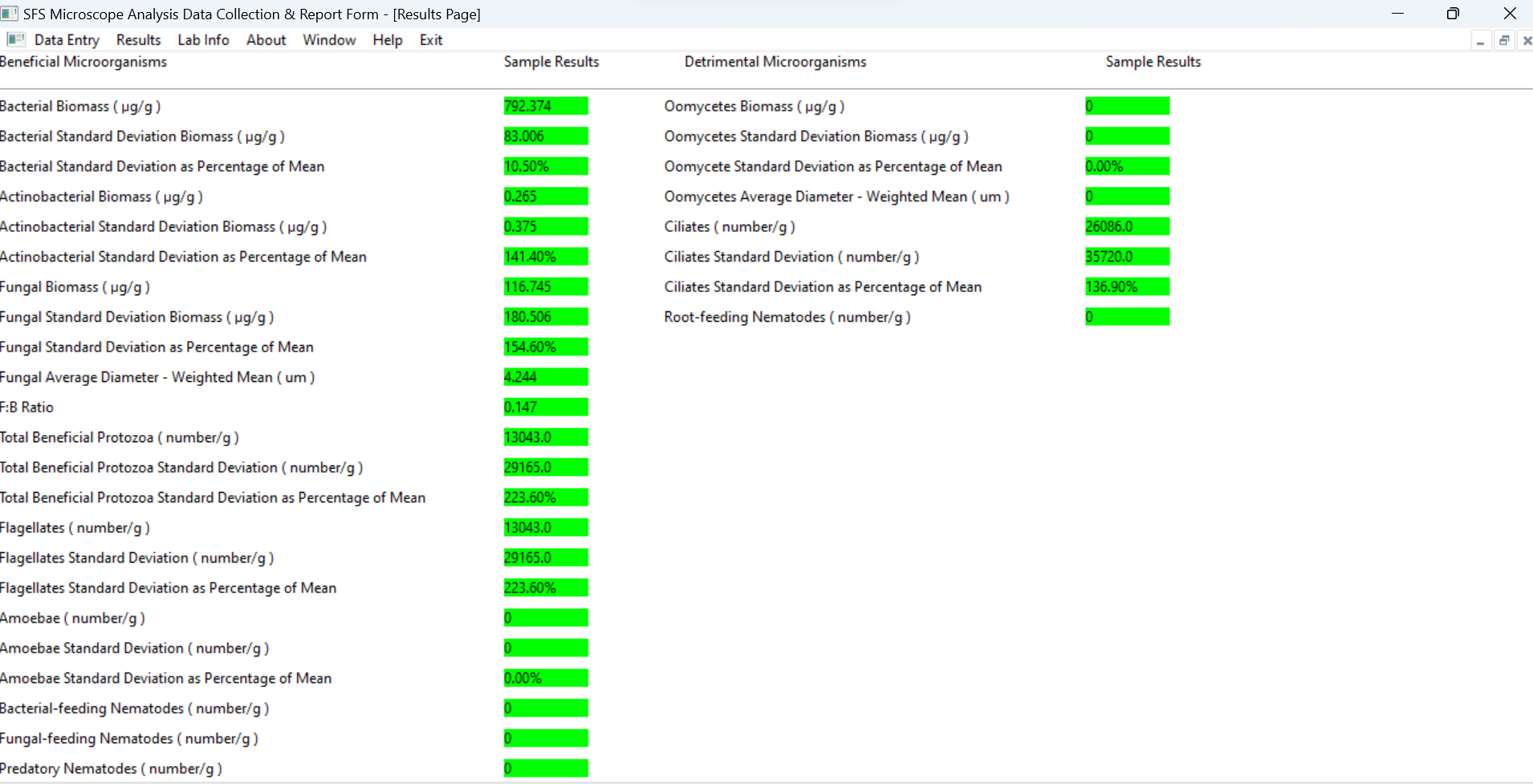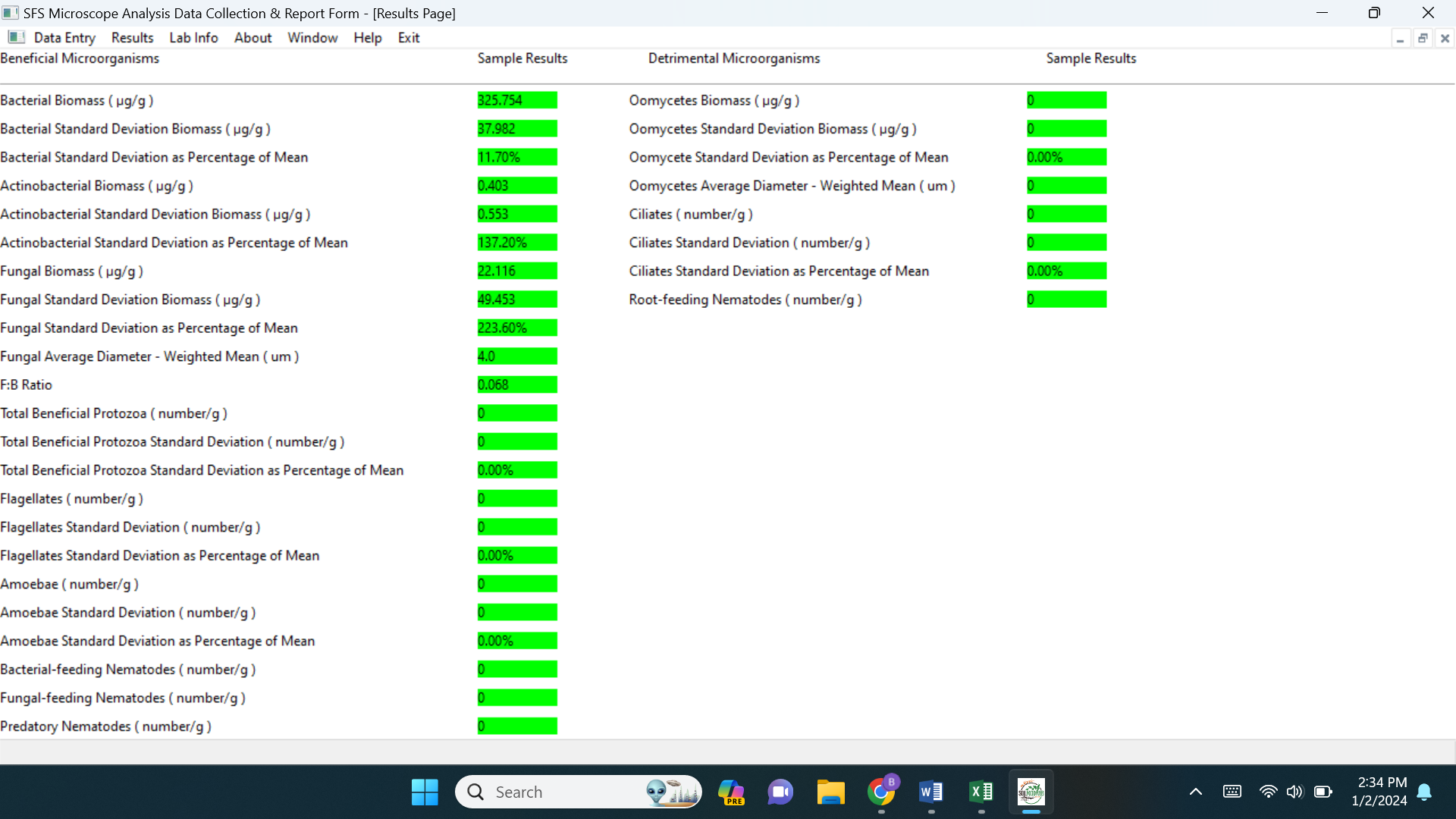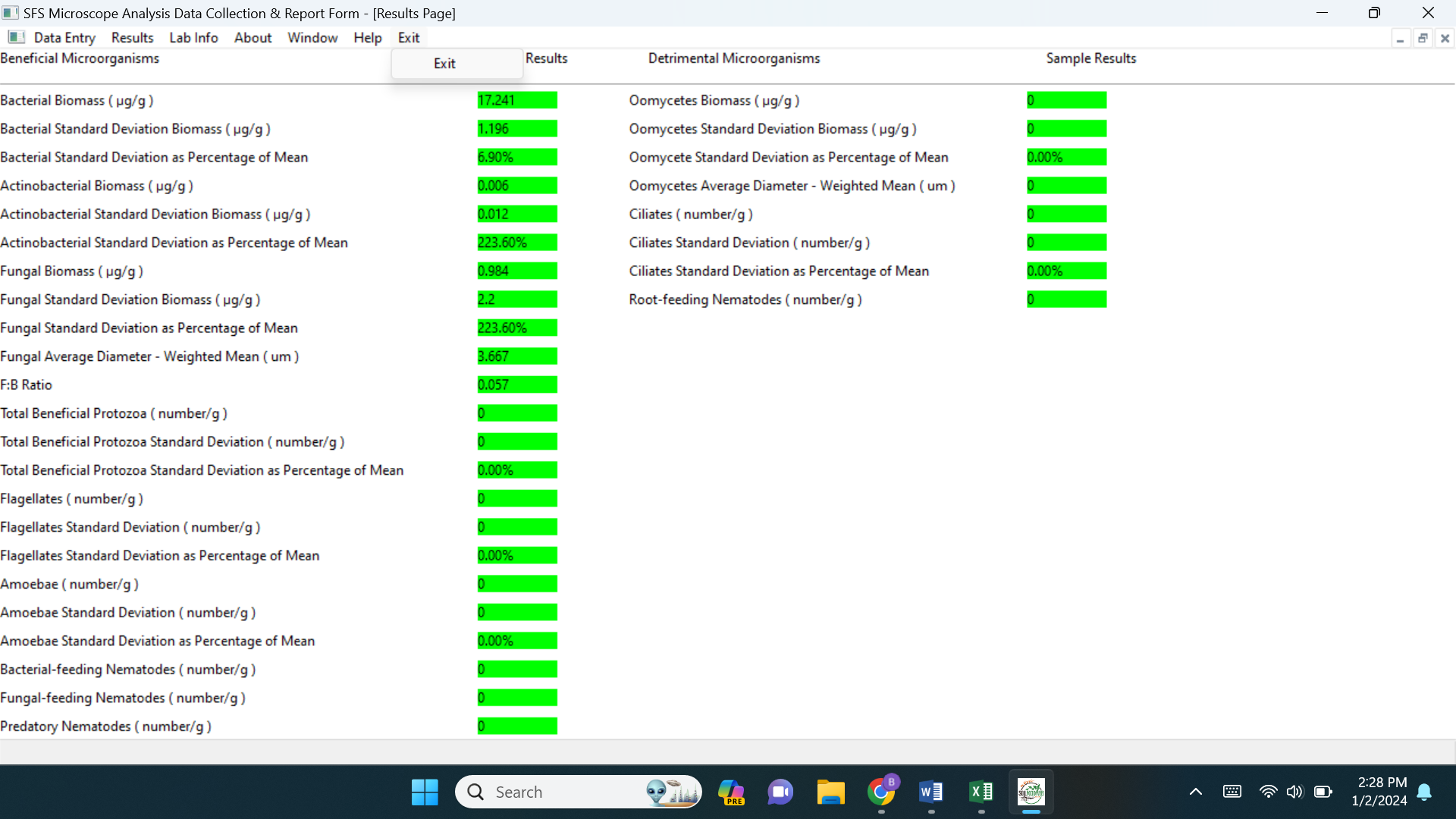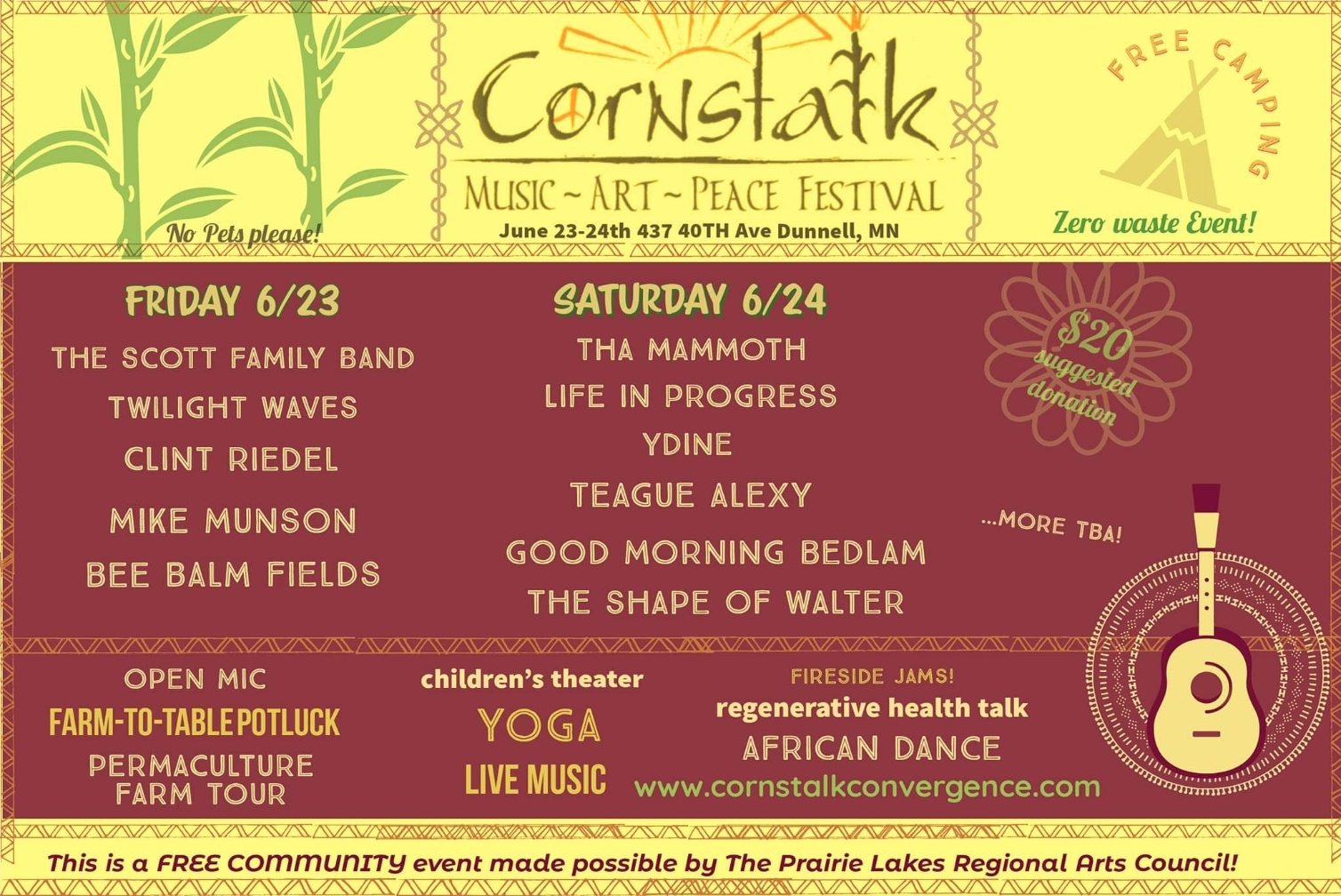Final report for FNC22-1352
Project Information
Our operation is 332 acres of corn and soy as well as an acre of vegetable gardens and orchard. We did our first time of cover cropping in the late summer of 2021 and sprayed with a biological product called Holganix on 264 acres in the summer of 2022. This next year we are gearing up to spray all of the ground with biologically complete compost extract and teas.
Soil health is one of the largest issues in the world today. Our soil is depleted and poisoned and this is largely due to our agricultural practices. Being a farmer in southern Minnesota I have experienced the very limited options for fertilizer and soil amendments. Most of these options are synthetic and shipped in from far away places. Synthetic fertilizers are destroying the microorganisms in the soil which are essential for growing healthy crops. In addition, there are significant environmental destruction factors from the production of synthetic fertilizers. In order to address this huge problem we need to create local systems that produce the inputs needed for large scale agriculture. The process of making our own organic inputs will strengthen the community all while rebuilding the health and diversity of our soils. This project will be a template for communities all over to take a huge step towards environmental regeneration and self sufficiency.
This research project was conducted on 4 plots; field corn, soybeans, vegetable garden and orchard were the different plots observed. In early May we did the first soil assessment on all of the plots to have a starting point and we found that all of the plots had zero to very little of the protozoan, fungi, and nematode groups and were very bacterial dominant. In this state the land is selecting for weeds to grow, the fungal to bacterial ratio needs to be at least 1:1 to grow row crops and 12:1 to grow deciduous trees like our orchard plot.
After our initial assessment we sprayed all plots with a bio complete compost extract every two weeks and did soil assessments once a month through out the growing season. Our findings showed an increase in microorganism population and diversity with even just the first spray. As the season went on the density did go down we think due to less moisture in the system through July and August, but there were still microorganisms present. Even though the soil is not at a fungal to bacterial ratio of 1:1 (which is what row crops require) our results are still a huge improvement because now that the micro organisms are at least present, they will be able to reproduce and grow in population.
This winter we are working on retrofitting a sprayer with a diaphragm pump so that we can deliver the biologicals without damage on a large scale. We already have created enough bio complete compost for the season to cover all of our gardens and all of our 400 acres we are farming. Also, we have 3 neighbor farmers that are interested in getting the microorganisms on their fields to increase yields and deal with the root worm problems they have been experiencing in the last couple years. All of these outcomes are bringing us closer to accomplishing our solution of moving away from chemical farming which leads us to success for our farm and our community.
- Establish a systematic way to produce local sustainable agricultural inputs.
- Share findings and bring awareness through field days and educational gatherings.
- Create community around soil health and environmental stewardship.
1. We were able to learn how to create bio complete compost out of local ingredients. The recipe we found that worked best for the thermophilic compost was made of 50% pollinator bale (we have a pollinator plot that we baled, a lot of small stick material) 30% fresh grass clippings 10% horse manure (no de wormer) and 10% corn seed. We also experimented with creating a spin off JohnsonSu vermicompost and found that this style forms a very high fungal mass compost which is what we are wanting most with what our soil is lacking. We then took this compost and brewed in a 1,000 gallon tank for 1-2 hours, bubbling air through the compost tea bag submerged in the water to make "compost extract" - this is best for soil drenches. When we add foods like humic acid and kelp and brew for 24 hours, this become "compost tea", which is best for foliar applications.
Here is a picture of our brew tank set up.
This is the air pump that pushes air through the compost to rip the micro organisms off into the solution.
2. June 24th we had a great field day at the farm. We gave a tour, demonstrations, and discussions on regenerative agriculture and health. We now offer soil assessments to other farmers and gardeners, as well as offering our biological amendments and application. Along with offering education and support on how to transform dirt back into soil.
3. We have gained interest from neighboring farmers who are beginning to dig a little deeper into soil health and restoring their farms. They are excited to learn and try new things. So, the future looks bright on transforming our community farms as time goes on and we continue to create an example of how to transition to regenerative farming.
Cooperators
- (Educator)
Research
We had a great season of getting this project going. We employed a great intern who helped a lot and learned a lot about composting systems. Our timeline goals were a little delayed throughout the first year. We found that everything seemed to take longer than anticipated. We ended up not ordering the brewer the first season because the shipping was delayed to 24 weeks and we wanted to experiment with the equipment we had to determine which style and size would best suit our needs. After brewing 3 brews in the fall in a square 250 gallon tank, we determined that the 1,000 gallon tank is definitely what we need to satisfy the amount of acres we are wanting to cover. So we are in the process of submitting that order so we will be ready for spring time brewing.
Here is a picture of brewing a batch of extract
Building good compost piles was at the core of this project to get the biologically complete piles to then make the teas and extracts from was critical to our success. The first year of this project focused primarily on gathering materials to make compost and evaluating which ingredients produced the highest population and diversity of microorganisms. We created many thermophilic piles along with two bioreactors. The bioreactors seem to produce a more fungal dominant compost which is what our soil is lacking most. Our bioreactors were a spin off of the JohnsonSu bioreactor design. We built ours out of IBC totes and PVC pipes with holes to allow air to reach every 12 inches with in the tote and filling with woody clippings of our pollinator field adding red wiggler worms and watering daily for 8 months. Observing these piles gave us a lot of practice with the microscope, learning how to identify and assess soil and compost samples.
The second year we focused more on how to deliver these microorganisms to our plots and our large fields. Originally we had planned to use a self propelled John Deere sprayer to cover the large fields. After running a batch of compost extract through the sprayer and catching the liquid out of the nozzle we looked at it under the microscope and found that the microorganism weren't making it through intact. The amoebas' cell walls were bursting and fungal hyphae was non existent coming out of the nozzle. The centrifugal pump in the sprayer was destroying the extract. We had to shift gears and find another system. We then started using a 4 wheeler sprayer that has a diaphragm pump and the extract came through this system with no damage. So, we used the 4 wheeler sprayer for the research plots, but were not able to cover the large fields with such a small set up.
We took initial soil samples of 4 plots; field corn, soybeans, vegetable garden and orchard plot. Then, throughout the season, we sprayed with compost extract every two weeks and did soil assessments once a month. We did run into an issue with getting the soybean plot sprayed and assessed the last two times because our 4 wheeler was overheating and wasn't able to drive the 8 miles to the bean farm. So, the bean plot had two assessments and one application of the micro organisms.
In the fall after harvest we were able to use the liquid applicator on the planter to go over all of the large fields with extract in hopes of getting the biologicals out there ready for springtime action. The planter has a ground driven piston pump, and after catching a sample out of the nozzle and looking at it under the microscope showed that the micro organisms were coming out intact. Even the large bacterial feeding nematodes were making it through alive. The micro organisms will go dormant through the winter and will hopefully start reproducing, decomposing, and nutrient cycling as soon as it thaws.
This picture shows the planter applying the extract in the fall,
Our data showed that the fungal to bacterial ratio increased across all plots just after one application of compost extract in the spring. In some of the plots the 2nd, 3rd and 4th assessments show presence of microorganisms but not an increase, we think this was due to the dry weather in July and August. These results are very exciting because as time goes on these microorganisms will multiply and have the ability to reestablish the soil food web within the dirt which then leads to more nutrient cycling and less dependence on synthetic fertilizers and herbicides.
Bean plot 6-7-23
Corn plot 5-7-23
Corn plot 6-5-23
Corn plot 7-12-23
Corn plot 8-22-23
Garden plot 5-7-23
Garden plot 6-6-23
Garden plot 7-12-23
Garden plot 8-31-23
Orchard plot 5-7-23
Orchard plot 6-7-23
Orchard plot 7-13-23
Orchard plot 8-31-23
The corn plot we did was located within a .33 acre plot that had no synthetic fertilizer or herbicide sprayed. We wanted to see what the impact was if we just stopped using those products. Like I mentioned earlier, we wanted to also spray this entire space with compost extract, but the large scale sprayer was unable to be used so we could only spray the small corn plot. I have attached the field yield map data for the .33 acre plot, it shows that the yield was down to 117 bushels per acre in the chemical free plot compared to 197 bushels per acre where the chemicals were used. This is to be expected as the soil structure and health is not fully established yet, but it was good to see that even if we cut off all of those inputs, we still have a yield. So, with the soil health intact we will see a much better yield in years to come. north homeplace yield map
Educational & Outreach Activities
Participation Summary:
We had a field day planned for June 24th, 2023 where we talked about the project and toured some fields and garden spaces to see how the compost teas and extracts are working. We met with the FFA teacher at the high school to talk about the project and offer the internship to interested students.
June 24th 2023 was our field day and it was a great success. We had about 15 large scale farmers and 10 gardeners and then about 10 others who were interested in soil health and composting. We started with a tour of some of our research plots then showed our different compost piles and methods. We demonstrated how to take temperatures of piles to determine whether they were actively composting and discussed timing of turning the piles for the destroying pathogens and keeping the beneficial microbes alive. We then showed the brewing system and talked about why and how we make the teas and extracts. At the end we had a discussion about the current state of agriculture and where it is headed. We drank some superfoods and touched on how soil health is directly correlated to human health. The group talked for a long time about the weaving of regenerative health and regenerative agriculture.
This field day was in the morning during Cornstalk music festival, we did these events during the same weekend to try to get a lot of people at the farm for the demonstrations and tour. It is listed as permaculture tour and regenerative health talks.
Learning Outcomes
This grant has taught us how to use our microscope to see what is going on in our soil on a microscopic level. This has helped us to see what is lacking and what is working in the soil food web. This directly impacts the health of our plants and therefore yield and success of our farm. We are currently gearing up for the next year's growing season by creating year round bio complete compost to use in the creation of our compost teas and extracts that we plan to spray throughout the growing season. We are also practicing identifying different micro organisms with the microscope so that we can be more proficient in analyzing the health of our soil.
Lessening our chemical herbicide and fertilizer inputs is the main advantage of our project - which is more cost effective as well as more environmentally beneficial. The disadvantage is that we have been on a sharp learning curve of how to retrofit our current equipment to successfully create and distribute the micro organisms. I would tell other farmers about how this has been a fun learning process and has been empowering to learn that it is possible to farm in a more symbiotic way and let biology do the work.
In the second year of this project we dialed in our composting systems and ingredient sources as well as making the compost extract. We learned what it will take to deliver the microorganisms at a large scale and have plans to retrofit a sprayer with the correct pump and plumbing. It will take some time to fully overcome our barrier of having to use synthetic fertilizers and herbicides. Every year we plan to dedicate more and more land to being free from chemicals. We planted 15 acres of White Dutch clover on ground that will be soybeans this next year in hopes to establish a perennial cover crop system that will feed the microbes year round. With this idea, we can keep the ground covered to continue building soil structure and health while staying away from the use of chemicals.
Another thing we experienced this year that I would tell farmers is that these methods of working with the soil bring you closer to knowing your land. As a farmer, you spend more time out in the field looking at different components of why soil is a certain way in certain areas and why plants are responding in different ways. You develop a relationship with your land and this, I feel, is the key piece to farming in a more symbiotic way with nature.
Project Outcomes
We had some great feedback from our farm tour. One story was a farmer from the local area couldn't believe how the bioreactors worked so simply to produce such high quality compost. He was excited that he could use an IBC tote that he has just laying around to get the fungi growing. Also, I think everyone was excited to learn a way of composting that doesn't require a lot of turning and monitoring.
I feel this project has planted a lot of seeds in our community just by starting the conversation around soil health. It has been a delicate dance to start these conversations because a lot of farmers get defensive when you bring up the destruction that is caused by the ways we farm today. Some take it as a personal attack on their values and way of life, but by educating and sharing our experiences and successes, we will continue to influence our neighbors in a positive way.
Future study recommendations for this discipline would be to do a larger scale study. It would be really interesting to see how the affects of adding biologicals to large areas influence soil health and yields over time. When working with biology, it is important to recognize how it takes some time to change soil structure and therefore, it takes time to see the benefits of of transitioning from chemical farming to biological farming.
